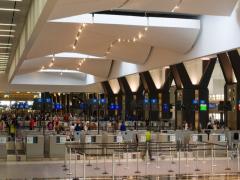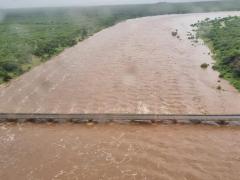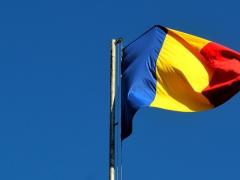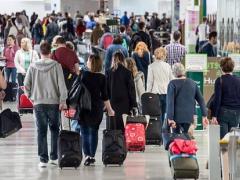PROPOSED sharp cuts in
new Acsa tariffs would
do more harm than
good, industry experts say.
While decreases would be
welcomed by airlines and
passengers, a sharp drop
could impact negatively
on important projects
and create uncertainty in
the market.
Acsa could be facing a
42% decrease in airport
tariffs if the gazetted draft
tariffs are accepted. This
decrease could have serious
implications for the airports
company and could prove
too steep, South Africa’s
airline associations Aasa
and Barsa say.
The Department of
Transport recently gazetted
new draft tariffs proposed by
the Regulating Committee
outlining a 42,5% decrease
for the 2015-2016 year,
followed by increases of
4,1% and 15,8% in the next
two years respectively.
The final permission
application, which will
contain the new tariffs, has
encountered several delays.
The original implementation
date was set at April 1.
If the proposed 42,5%
decrease in tariffs is
finalised, this would have a
significant impact on Acsa
as the decrease would need
to be paid back, says Chris
Zweigenthal, ceo of Aasa.
In effect, this would mean
that Acsa would be facing
a significant 84% decrease
in tariffs.
Acsa cfo Maureen
Manyama told TNW this
“claw-back” concept is the
Regulating Committee’s way
of incentivising the industry
by reducing the tariff. She
says there are various ways
this can be done without
resulting in a big reduction.
“What we are advocating is
the smoothing of tariffs so
that, firstly, there is a little
bit of predictability for the
organisation and secondly,
so that there aren’t major
spikes in tariffs, which will
be resisted by the industry.”
A decrease in tariffs
will not necessarily boost
traffic to South Africa as
there are a lot of other
influencing factors when
airlines consider a route,
says June Crawford, ceo
of Barsa. “Any reduction
in the passenger service
charge is obviously a good
thing for tourism,” she says,
but also points out it is
important not to have too
many spikes when it comes
to tariffs, as this creates
uncertainty in the market.
Acsa submitted to the
Regulating Committee a
7,5% tariff decrease for
years one and two, and
expected the tariffs to
remain flat for the remaining
three years of the fiveyear
period, Maureen said.
Acsa is currently operating
under a zero tariff increase
regime.
The airports company
consulted extensively
with industry associations
such as Barsa, Aasa and
Iata over the past two
years about which capital
expenditure projects the
industry requires as well
as what the passenger
forecasts are for the coming
five years. “Associations
signed off together with
Acsa and agreed on no
increases. It was a very
cordial and transparent
process,” says June.
However, for the first time
in history the Regulating
Committee chose to
disallow some projects,
such as the realignment
of the Cape Town runway,
which the industry had
agreed on. They cut the
agreed capital expenditure
amount on which the
Acsa tariff application was
based,” says June,
explaining that this is
significant because
they haven’t considered
the industry’s
recommendations about
capex and projects.
Acsa announced a R1,4bn
profit after taxes for the
financial year ending March
2014. Although down from
the previous year’s R1,7bn
profit, it marks the second
highest profit recorded in
the company’s history.
In what was described by
Acsa ceo Bongani Maseko
as a “successful year
all-round”, the airports
company’s revenue grew
to R7,8bn. The number
of departing passengers
grew 2,4% from 17,4m
to 17,8m.












